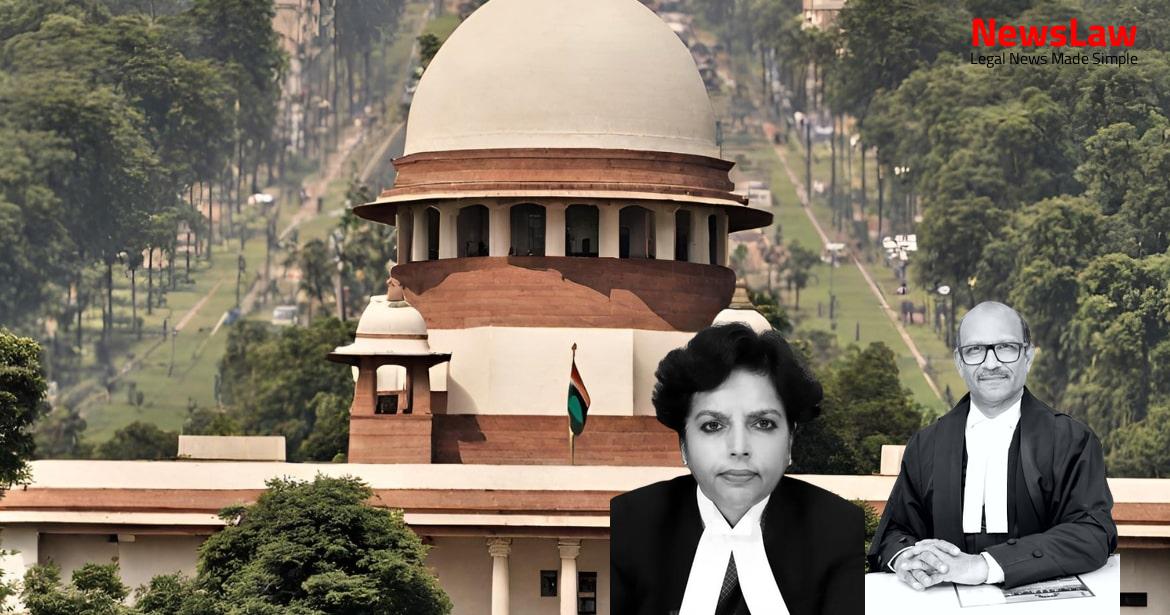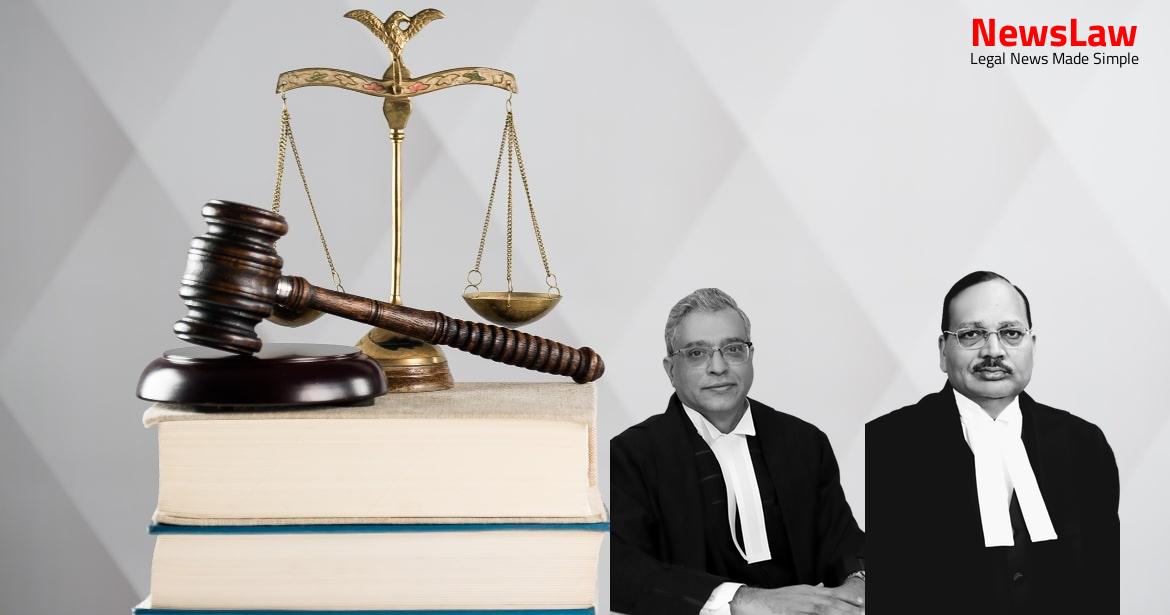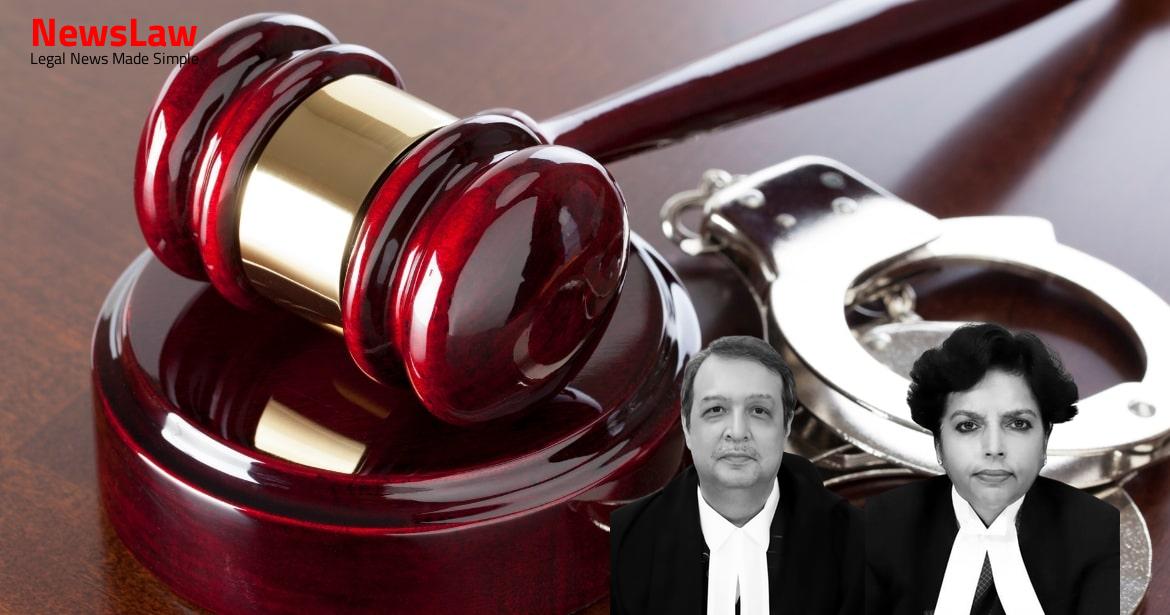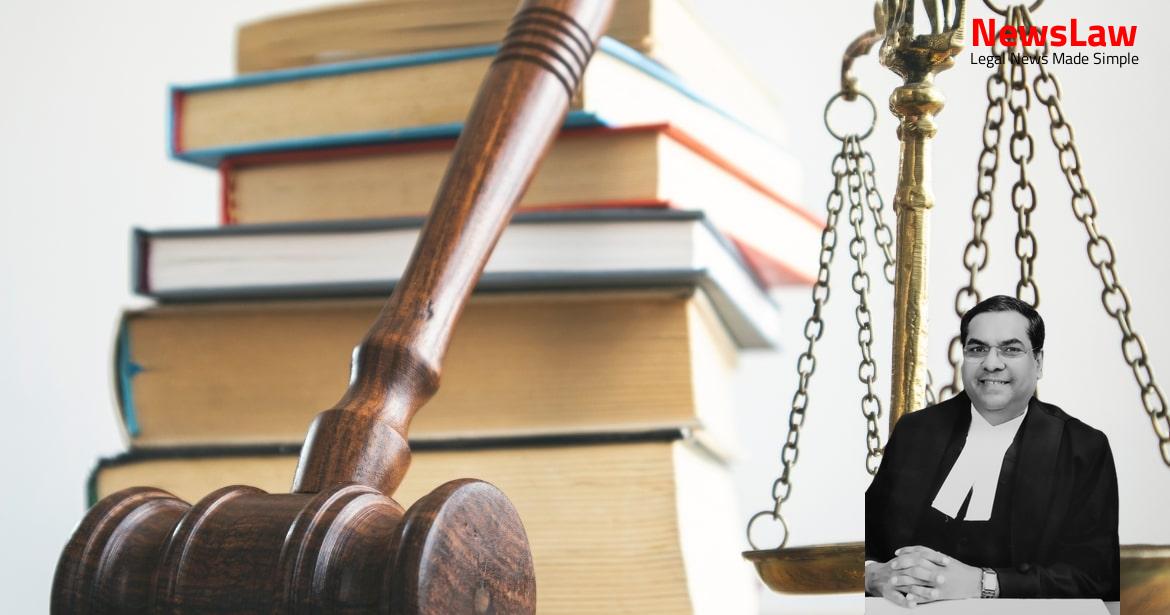In a significant case concerning a promotion dispute, the Supreme Court of India has delivered a crucial judgement on the right to equal opportunity in employment. The case involves a dispute between parties regarding the promotion timeline for a specific individual. The judgement emphasizes the fundamental right to be considered for promotion and sheds light on the importance of adherence to promotion criteria. Let’s delve into the details of this case and the Court’s decision.
Facts
- The appellant Board challenged the promotion given to the respondent on 5 March, 2003, citing administrative problems during the bifurcation of Bihar.
- The Single Judge agreed with the appellant’s submission and held that the promotion date could not be shifted to July, 1997.
- The respondent filed an intra court appeal after superannuating from the post of Under Secretary, claiming benefits retrospectively.
- The Single Judge dismissed the writ petition, but the Division Bench overturned this decision, citing non-adherence to the Kal Awadhi in the Board’s rejection resolution.
- The respondent, a physically challenged individual from the Scheduled Caste category, was appointed as a Lower Division Assistant in 1976 and later promoted to Upper Division Assistant on an officiating basis.
- The Board reorganized its administrative cadre, and the respondent sought promotion to the post of Joint Secretary, which was rejected due to the lack of vacancy at that time.
- Various notifications and resolutions were issued by the Board granting the respondent accelerated promotions to different posts from 1982 to 2003.
- The respondent filed a writ petition seeking promotion to the post of Joint Secretary with effect from 29 July, 1997, instead of 5 March, 2003, citing a vacant reserved category post at the Board.
- The High Court directed the Board to consider the respondent’s representation for promotion within a specified timeline.
- The Board’s Resolution in June 2005 mentioned the respondent’s service duration and his five granted promotions, which led to a writ petition by the respondent.
- Several notifications and resolutions were issued by the Board granting the respondent accelerated promotions to various posts, including Under Secretary and finally Joint Secretary.
- In December 2003, the number of sanctioned Joint Secretary posts at the Board’s headquarters was reduced from six to three.
Also Read: Supreme Court Judgment on Bail Orders for Respondents Waseem, Nazim, Aslam, and Abubakar
Arguments
- The right to be considered for promotion is treated as a fundamental right, but there is no fundamental right to promotion itself.
- The concept of Kal Awadhi signifies qualifying service and not mandatory immediate promotion upon completion of the prescribed period.
- Completion of Kal Awadhi makes an employee eligible for consideration for promotion, but does not compel immediate promotion.
- The respondent had already received five accelerated promotions in 23 years, which should be considered in the promotion timeline.
- The respondent completed Kal Awadhi for promotion to Joint Secretary on 29 July, 1997, but there was no vacancy until his actual promotion on 5 March, 2003.
- Citing cases like Nirmal Chandra Sinha vs Union of India and Others, it is argued that the promotion timing should consider vacancy availability.
- Arguments for and against the promotion date focus on the completion of Kal Awadhi and eligibility criteria, as well as the respondent’s seniority and category status.
- The impugned judgement is supported by the respondent’s completion of Kal Awadhi on 29 July, 1997, seniority, and eligibility for promotion on that date.
Also Read: Time as Essence of Contract in Sale Agreement: Legal Analysis
Analysis
- The right to be considered for promotion is a fundamental right guaranteed under Article 16(1) of the Constitution.
- The principle of ‘equality of opportunity’ in employment and appointment is enshrined in this right.
- Employees are entitled to be considered for promotion based on eligibility criteria and applicable rules.
- Seniority for promotion should be reckoned from the date of the vacancy within the quota.
- Retrospective promotion or seniority cannot be granted if it adversely affects others.
- Seniority must be determined according to service rules and date of entry into service.
- Promotion should only be granted from the date of promotion, not from the date of vacancy.
- The right to be ‘considered’ for promotion is a facet of the right to equal opportunity in employment.
- Failure to consider an employee for promotion after satisfying eligibility criteria violates their fundamental right.
- A distinction exists between being considered for promotion and having a vested right for promotion.
- Mere existence of a vacancy does not entitle an employee to claim seniority; actual appointment process matters.
- Seniority cannot be granted retrospectively unless explicitly provided for in service rules.
- Consistent precedent establishes that the right to be considered for promotion is a fundamental right.
- Retrospective seniority cannot be granted from a date when an employee was not on the cadre.
- Article 14 demands equality before the law and equal protection of the laws.
- Article 16(1) mandates equality of opportunity in matters of employment or appointment under the State.
- Article 16(1) is a facet of Article 14 and identifies equality of opportunity in employment and appointments.
- The word ’employment’ includes promotions above the initial recruitment stage.
- The judgment discusses the aim of the resolution to ensure employees gain sufficient experience before being considered for promotion.
- It states that there was no deprivation of promotion to the next higher post in this case.
- The decision to not give retrospective effect to the appointment order was due to administrative exigencies.
- The subsequent office order in 2003 designated the distribution of Joint Secretary positions among various cadres.
- It mentions that the Board’s action was not based on malafides or a colorable exercise of power.
- The Board rejected the plea to shift the promotion date to an earlier year due to the absence of a vacant post during that period.
- The reduction of sanctioned posts of Joint Secretary from six to three was a calibrated decision taken by the Board.
- There was no vacancy for the post of Under Secretary when the post count was reduced from six to three.
- Notional seniority is not granted from the backdate unless based on valid classification and statutory rules.
- It outlines the series of accelerated promotions the individual received within a span of ten years and five months.
- The resolution of 1991 prescribed a minimum qualifying service for promotions, but completion of that service does not automatically entitle an employee to promotion.
- It emphasizes that completion of minimum qualifying service does not guarantee automatic promotion to the next grade.
- The Resolution of the Board dated 26 December, 1991 for fixing the Kal Awadhi was deemed directory and not statutory for claiming promotion.
- The entitlement to promotion should be reckoned from 5 March, 2003 as per the statutory provisions.
- The view aligns with settled legal principles and is considered correct.
- Therefore, the present appeal is successful based on these reasons.
Also Read: Retirement Age of PTI/Sports Officer in University
Decision
- Parties are left to bear their own expenses.
- The impugned order dated 20 October 2011 is set aside.
- The order dated 3 October, 2007 passed by the learned Single Judge is restored.
Case Title: BIHAR STATE ELECTRICITY BOARD Vs. DHARAMDEO DAS (2024 INSC 549)
Case Number: C.A. No.-006977-006977 – 2015



